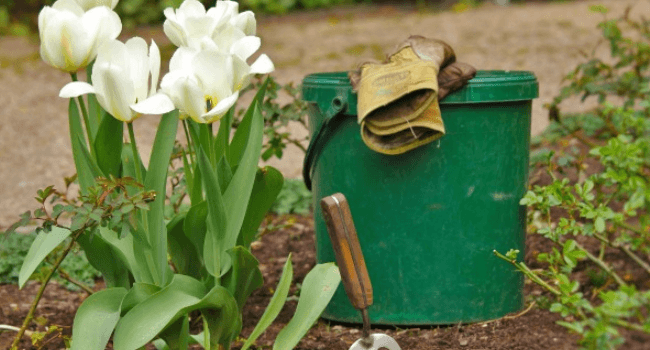
Deep Underground: Tips For Getting Your Garden Ready For Spring in PA
Spring is a wonderful time of the year for gardening. After a long winter, it is time to start preparing your garden for the upcoming season. Let’s take a look at some tips for getting your garden ready for spring. From cleaning up debris to fertilizing the soil, these tips will help ensure that your garden is ready for the warm weather to come.
Inspect Your Soil
Proper soil inspection is an essential part of gardening and it is important to make sure your soil is healthy and ready for planting. Before planting, inspect the soil for any signs of pests, diseases, or weeds, and remove any debris and roots. Test the soil’s pH level and adjust it to the appropriate level for the plants you plan on growing. Make sure to add necessary nutrients to the soil, such as fertilizer, compost, or manure, to give your plants the best environment to thrive in Pennsylvania weather.
Having soil delivered is a great way to ensure that your garden will have the best start possible. Not only can it save you time and effort, but you can also be sure that the soil you are using is of the best for PA and free of any pests, diseases, or weeds. You can also customize the soil to the specific needs of your plants, ensuring that they have the best environment to grow and flourish in.
Till Your Garden
Tilling a garden is an essential part of gardening and it is important to do it correctly. To properly till a garden, start by removing any weeds, rocks, roots, and other debris from the soil. Then use a garden tiller to break up the soil and create furrows for planting. Make sure to move the tiller in a slow, steady pattern to avoid compacting the soil. To ensure even tilling, go over the area multiple times in different directions. After tilling, the soil should be loose and ready for planting.
To further prepare the soil for planting, mix in organic matter such as compost or aged manure. This will help to improve the soil structure and provide nutrients for your plants. If needed, add a layer of mulch to the top of the soil to help keep moisture in and protect the plants from weeds.
Once you have finished tilling your garden, it is important to keep an eye on the soil, making sure it does not become too compacted. If it does, use a garden rake to fluff up the soil, and then re-till if necessary. With proper tilling and preparation, your garden will be ready for planting and you can enjoy your garden all season long.
Water, Fertilizer, And Weeding
Watering is an essential part of gardening and it is important to know how to properly water your garden. The key is to make sure that your plants are receiving the right amount of water. To do this, keep an eye on the soil and check for signs of drought stress like wilting or yellowing leaves. When watering, it is best to use a watering can or hose and apply water at the base of the plants to avoid wetting the leaves. Depending on the plants and the weather, you may need to water your garden daily or weekly.
When fertilizing your garden, it is important to know what type of fertilizer to use and how to apply it correctly. Different plants may require different types of fertilizer, so make sure to read the label of the fertilizer before applying. Generally, it is best to apply fertilizer to the soil, rather than directly onto the plants. Be sure to spread the fertilizer evenly and water it in after application to help it soak into the soil.
Weeding is important to keep your garden healthy and free of unwanted plants. To do this, start by removing any weeds that are growing in the soil. Be sure to get the root of the weed, as this will help to prevent them from coming back. After removing the weeds, you can use a layer of mulch to help keep new weeds from growing in the future. Keeping the landscape clean is essential to a beautiful garden.
Mulch Your Garden
Mulching is another way that you can prepare your garden for spring. Mulching is simply the act of adding a layer of mulch around each plant in order to retain moisture and prevent weeds from growing in between each plant. Adding mulch will also help to protect each plant from pests and diseases because it prevents them from being able to easily move around in between each plant. Mulching will also help each plant to retain more water during the summer months because it prevents water from evaporating as easily as it would without mulch present. Mulching also helps to keep each plant evenly moist throughout the summer months because mulch will absorb any excess water that might escape from each plant’s roots as it grows taller and taller throughout the summer months.
Getting your garden ready for spring in PA is a great way to start the season off on the right foot. By following these tips, you can ensure that your garden has the best possible chance of success.




